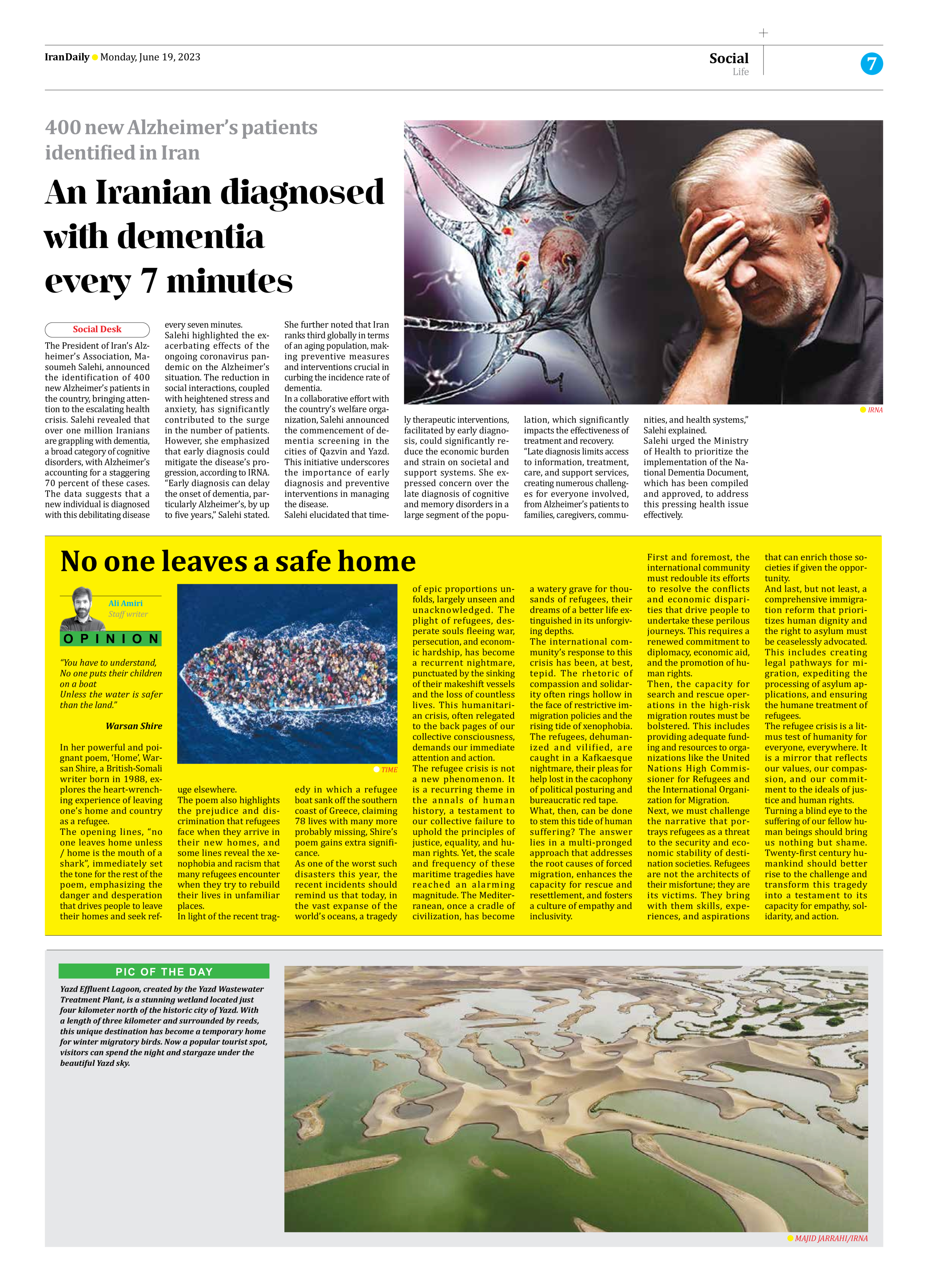
No one leaves a safe home
Ali Amiri
Staff writer
“You have to understand,
No one puts their children on a boat
Unless the water is safer than the land.”
Warsan Shire
In her powerful and poignant poem, ‘Home’, Warsan Shire, a British-Somali writer born in 1988, explores the heart-wrenching experience of leaving one’s home and country as a refugee.
The opening lines, “no one leaves home unless / home is the mouth of a shark”, immediately set the tone for the rest of the poem, emphasizing the danger and desperation that drives people to leave their homes and seek refuge elsewhere.
The poem also highlights the prejudice and discrimination that refugees face when they arrive in their new homes, and some lines reveal the xenophobia and racism that many refugees encounter when they try to rebuild their lives in unfamiliar places.
In light of the recent tragedy in which a refugee boat sank off the southern coast of Greece, claiming 78 lives with many more probably missing, Shire’s poem gains extra significance.
As one of the worst such disasters this year, the recent incidents should remind us that today, in the vast expanse of the world’s oceans, a tragedy of epic proportions unfolds, largely unseen and unacknowledged. The plight of refugees, desperate souls fleeing war, persecution, and economic hardship, has become a recurrent nightmare, punctuated by the sinking of their makeshift vessels and the loss of countless lives. This humanitarian crisis, often relegated to the back pages of our collective consciousness, demands our immediate attention and action.
The refugee crisis is not a new phenomenon. It is a recurring theme in the annals of human history, a testament to our collective failure to uphold the principles of justice, equality, and human rights. Yet, the scale and frequency of these maritime tragedies have reached an alarming magnitude. The Mediterranean, once a cradle of civilization, has become a watery grave for thousands of refugees, their dreams of a better life extinguished in its unforgiving depths.
The international community’s response to this crisis has been, at best, tepid. The rhetoric of compassion and solidarity often rings hollow in the face of restrictive immigration policies and the rising tide of xenophobia. The refugees, dehumanized and vilified, are caught in a Kafkaesque nightmare, their pleas for help lost in the cacophony of political posturing and bureaucratic red tape.
What, then, can be done to stem this tide of human suffering? The answer lies in a multi-pronged approach that addresses the root causes of forced migration, enhances the capacity for rescue and resettlement, and fosters a culture of empathy and inclusivity.
First and foremost, the international community must redouble its efforts to resolve the conflicts and economic disparities that drive people to undertake these perilous journeys. This requires a renewed commitment to diplomacy, economic aid, and the promotion of human rights.
Then, the capacity for search and rescue operations in the high-risk migration routes must be bolstered. This includes providing adequate funding and resources to organizations like the United Nations High Commissioner for Refugees and the International Organization for Migration.
Next, we must challenge the narrative that portrays refugees as a threat to the security and economic stability of destination societies. Refugees are not the architects of their misfortune; they are its victims. They bring with them skills, experiences, and aspirations that can enrich those societies if given the opportunity.
And last, but not least, a comprehensive immigration reform that prioritizes human dignity and the right to asylum must be ceaselessly advocated. This includes creating legal pathways for migration, expediting the processing of asylum applications, and ensuring the humane treatment of refugees.
The refugee crisis is a litmus test of humanity for everyone, everywhere. It is a mirror that reflects our values, our compassion, and our commitment to the ideals of justice and human rights.
Turning a blind eye to the suffering of our fellow human beings should bring us nothing but shame. Twenty-first century humankind should better rise to the challenge and transform this tragedy into a testament to its capacity for empathy, solidarity, and action.







